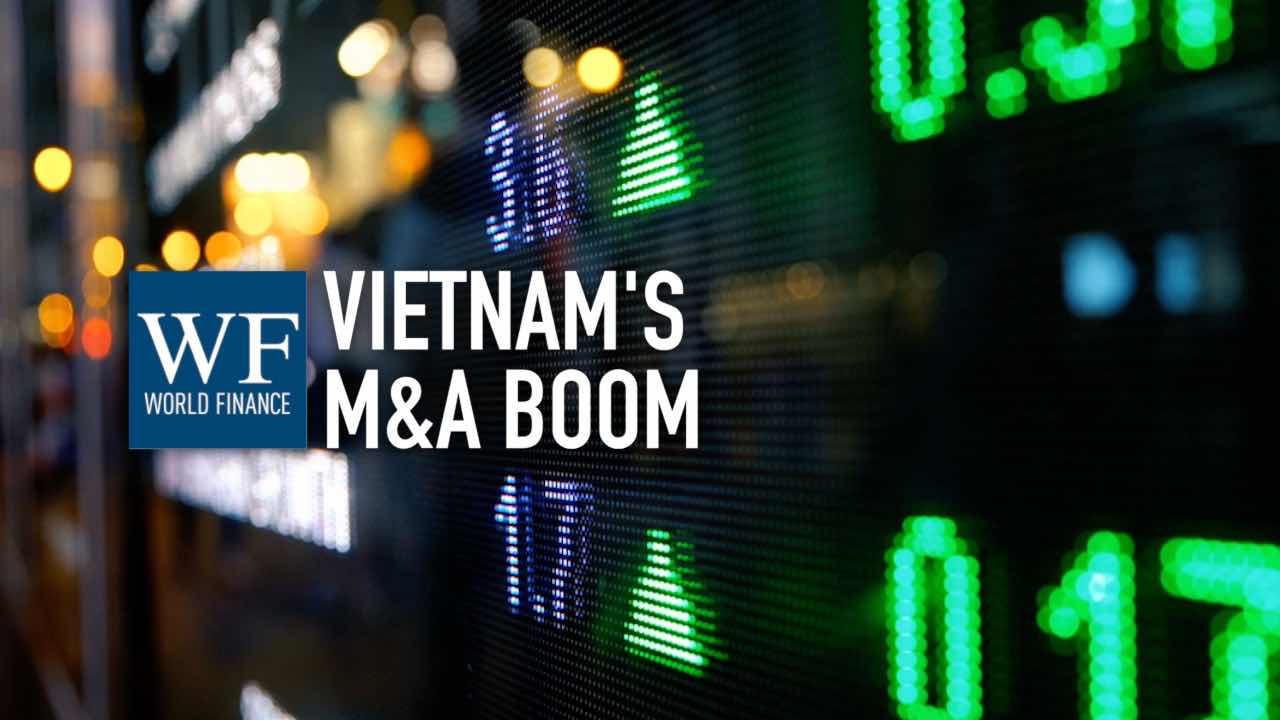BIDV Securities: Reform still needed in Vietnam’s state-owned enterprises
CEO Đỗ Huy Hoài explains the path forward for Vietnamese industry
Related:
Transcript
Vietnam may be the biggest winner from the TPP trade deal, but necessary reforms of its state-owned enterprises have been, to be diplomatic, gradual. Đỗ Huy Hoài, CEO of one of Vietnams oldest securities firms, BIDV Securities, explains the history of Vietnam’s state-owned enterprises, and what still needs to be achieved. He also discusses the challenges that still need to be eased for foreign investors, and points towards the areas of Vietnam’s economy that are attracting the most interest – such as hi-tech, finance and post-harvest technology. This video is in Vietnamese with English subtitles.
World Finance: Vietnam may be the biggest winner from the TPP trade deal, but necessary reforms of it state owned enterprises have been, to be diplomatic, gradual. Joining me is Đỗ Huy Hoài from one of Vietnams oldest securities firms, BIDV Securities.
Mr Hoài – explain to me the history of Vietnam’s state-owned enterprises and what still needs to be achieved.
Đỗ Huy Hoài: Firstly, as to how it developed, until 1986, Vietnam had been a centrally-planned economy. Therefore, all Vietnamese enterprises were state-owned. From 1986 on, because this model exhibited a number of limitations, the Vietnamese government decided to transition to a market-orientated economy.
In this transformation, 6,000 state-owned enterprises have undergone equitisation and been transformed into joint-stock companies. Up to now, 4,500 out of 6,000 such enterprises have completed their equitisation processes. Equitisation needs to be sped up and implemented continuously.
In addition, while some state-owned enterprises, which are successful in certain industries attract the market’s attention, others investing in undeveloped industries fail to do so. Moreover, in spite of the government’s decision, state-owned enterprises are not mentally ready for equitisation. This reluctance is an obstacle to adopting equitisation.
World Finance: What barriers or challenges are there for international investors? I understand there is some dissatisfaction with customs and tax authorities for example.
Đỗ Huy Hoài: Before 2015, customs duties and taxes were a problem; however, the Vietnamese government recognised this problem and implemented administrative reforms of customs duties and taxes. Following the reformation, Vietnamese procedures relating to customs duties and taxes started to comply with the common practices of ASEAN Six, and Vietnam is striving to bring customs and taxes into line with ASEAN Four in the near future.
We believe that with all of these achievements and with the progress yet to come, customs and tax procedures in Vietnam will be transformed from barriers into favourable conditions for promoting investment.
World Finance: What areas of the economy are seeing the most FDI activity?
Đỗ Huy Hoài: We have identified two trends during our activities. Regarding short-term investment, consumer goods and the retail industry are currently among the most attractive industries in the market.
With regard to long-term investment, however, industries such as hi-tech, finance and post harvest technology demonstrate tremendous potential. Recently, two ‘Silicon Valleys’ have been established in Ho Chi Minh City and Hanoi.
In Ho Chi Minh City, Intel has also been making investments in Vietnam for a number of years. In Hanoi, Samsung and Ricoh have also invested in large-scale projects and moved production to Vietnam.
World Finance: Finally, what changes can we expect to see in Vietnam’s markets in the coming year?
Đỗ Huy Hoài: The first change will relate to market structure; financial institutions will be founded. Vietnam must have financial institutions suitable for the modern economy, such as investment banks and refinance mortgage companies.
Secondly, in terms of market products, derivative products and bond markets must be put into practice. Thirdly, with regard to the market’s legal framework,
to come into line with the TPP and FTP agreements, Vietnam will have to make appropriate adjustments to its laws and regulations.
We expect that when the law on investment banking is enacted, it will promote the development of the stock market. We also hope that BSC will be one of the first companies to shift to this model under the law on investment banking in Vietnam.
World Finance: Đỗ Huy Hoài, thank you.

 Ho Chi Minh Stock Exchange on track to emerging market status by 2020-22
Ho Chi Minh Stock Exchange on track to emerging market status by 2020-22 MB Securities: Vietnamese M&A boom will grow to $50bn in 2020
MB Securities: Vietnamese M&A boom will grow to $50bn in 2020
